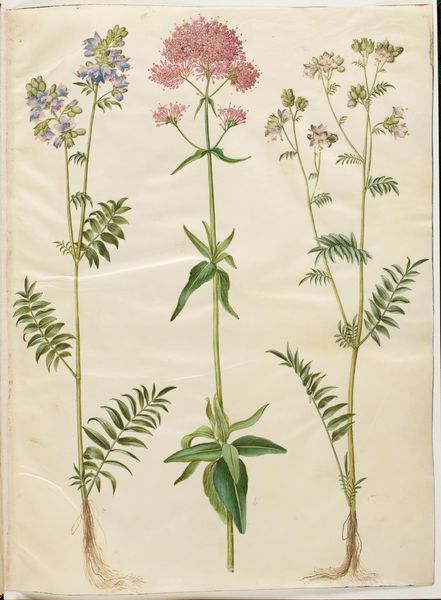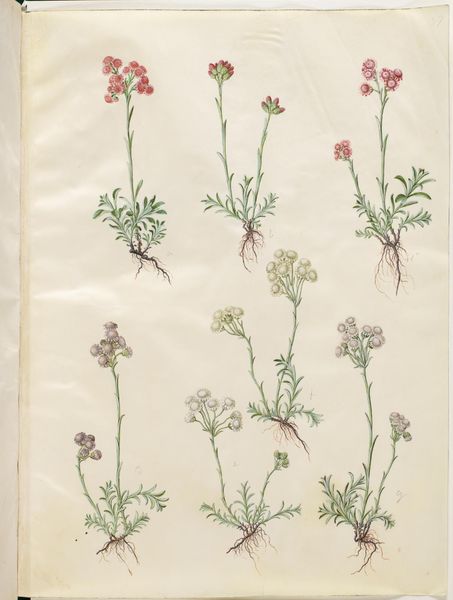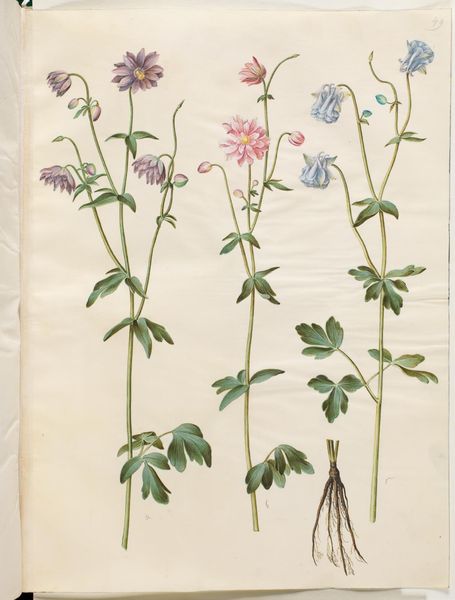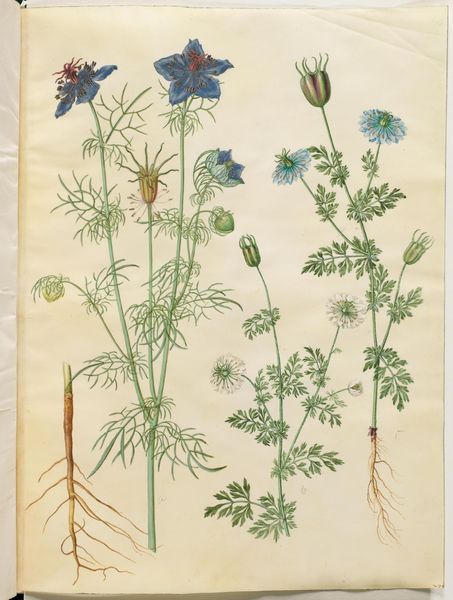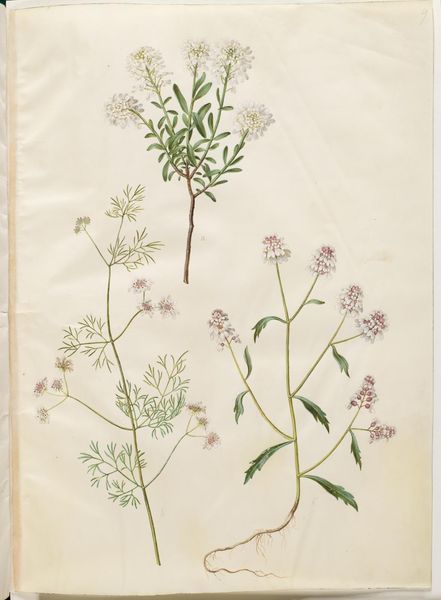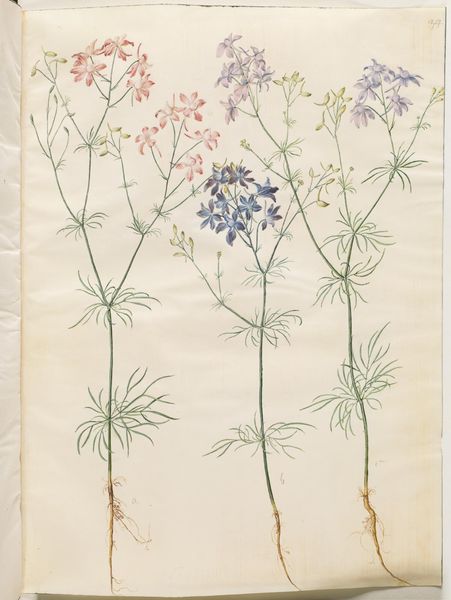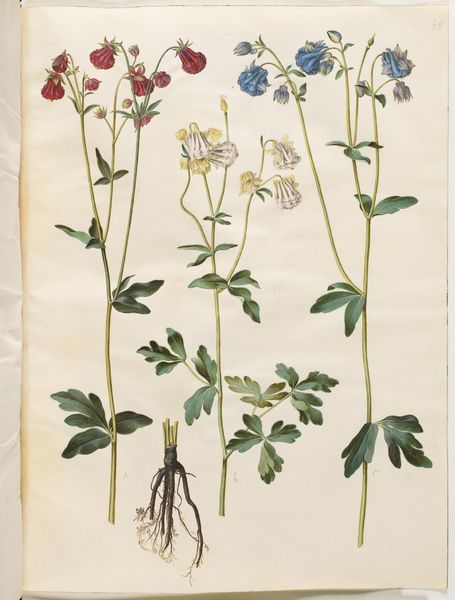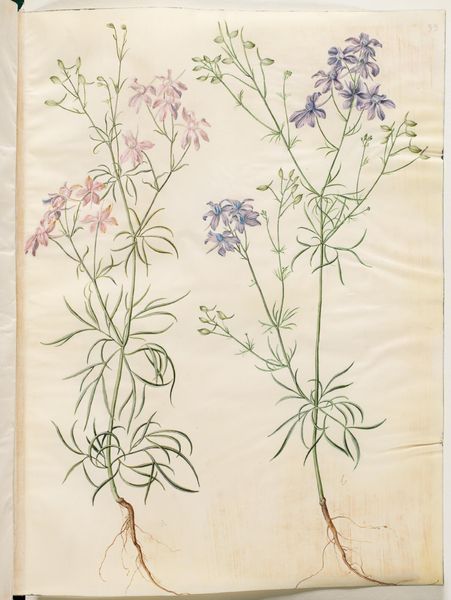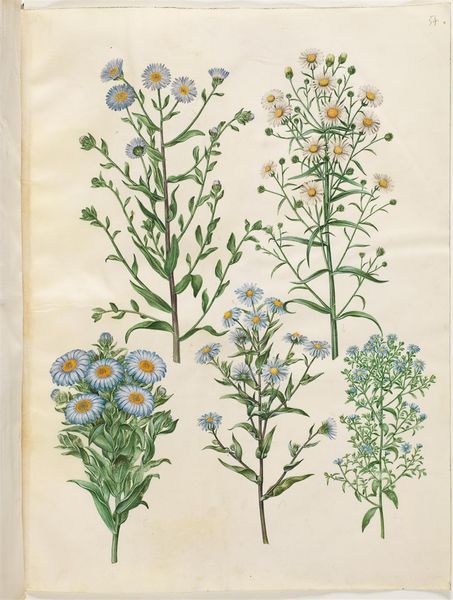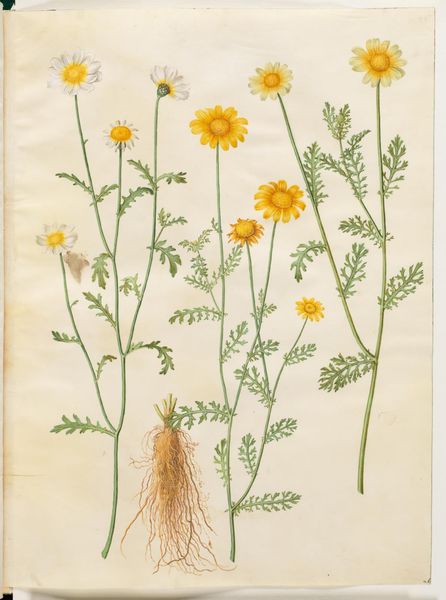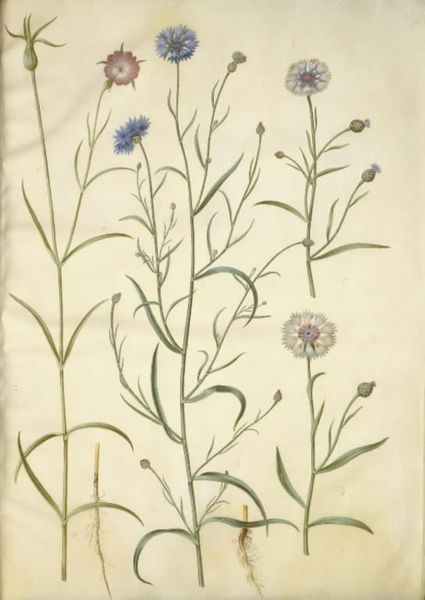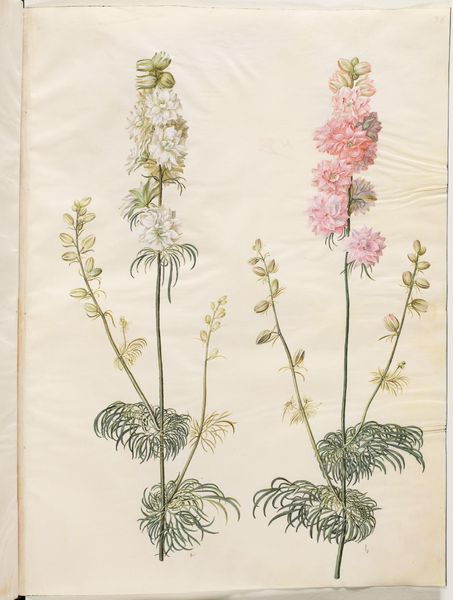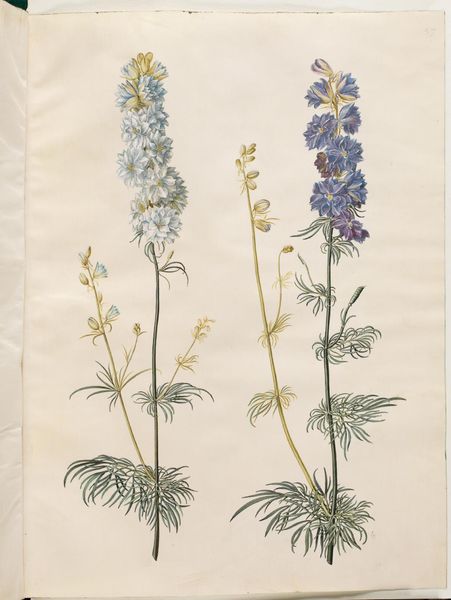
Nigella sativa (sortkommen); Nigella damascena (jomfru i det grønne) 1649 - 1659
0:00
0:00
drawing, painting, gouache, watercolor
#
drawing
#
painting
#
gouache
#
watercolor
#
botanical drawing
#
botanical art
#
watercolor
Dimensions: 505 mm (height) x 385 mm (width) (bladmaal)
Hans Simon Holtzbecker rendered Nigella sativa and Nigella damascena in watercolor and gouache on paper at an unknown date. Holtzbecker was a sought-after botanical artist in seventeenth-century Northern Europe. Though undated, this work reflects a period of heightened scientific observation and classification. The very act of depicting plant life with such detail speaks to the cultural and intellectual shifts of the time. Botanical illustration was crucial for scientific advancement, but also for the growth of gardens, both as status symbols and as sites of natural philosophy. Holtzbecker, employed by wealthy patrons and institutions, benefited from this social and economic context. His art wasn't just about accurate representation; it was a product of a society that valued scientific inquiry and the aesthetic appreciation of the natural world. To fully understand this piece, one might delve into period botanical texts, horticultural records, and the biographies of Holtzbecker's patrons, revealing the complex interplay between art, science, and society.
Comments
No comments
Be the first to comment and join the conversation on the ultimate creative platform.
